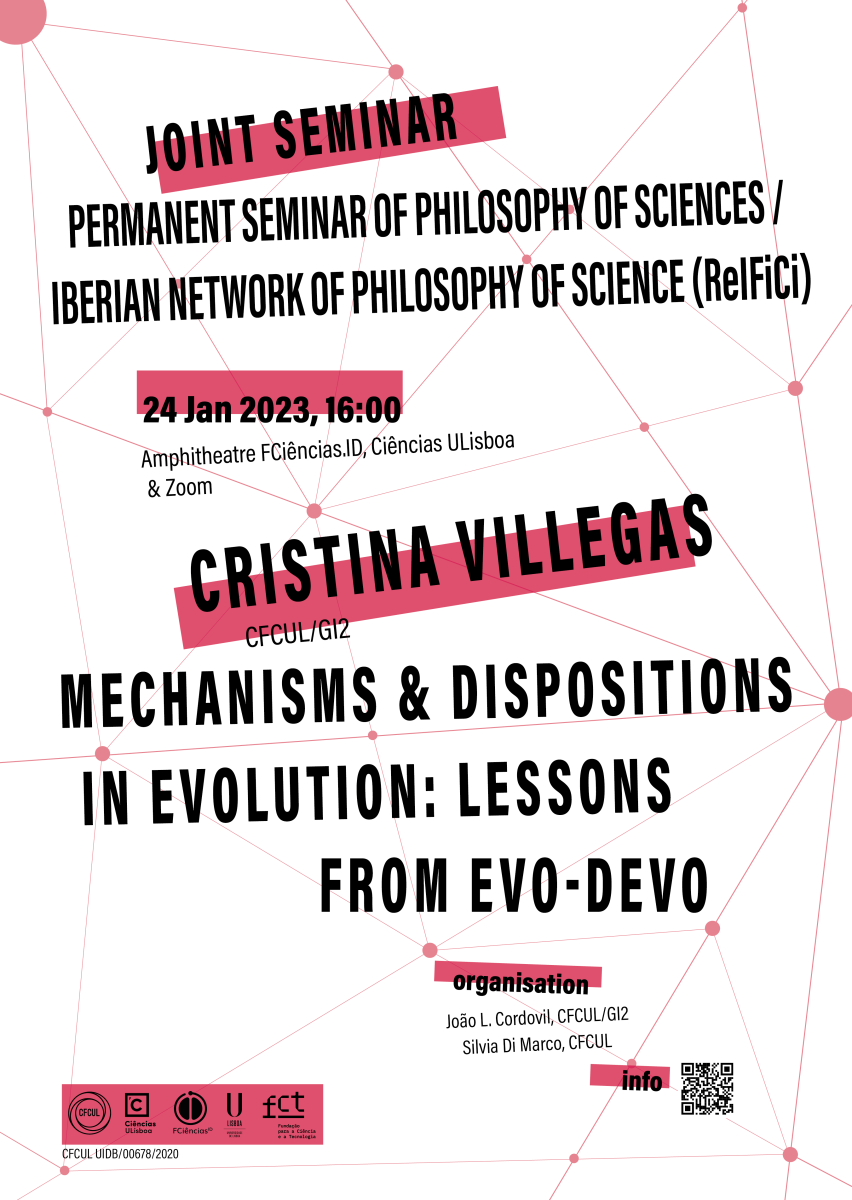Por Cristina Villegas (CFCUL/GI2).
Evolutionary-developmental biology (evo-devo) studies the evolution of developmental systems as well as the impact of developmental biases in evolutionary change. It is often vindicated as a crucial component of an undergoing “extension” of evolutionary biology. Two aspects of evo-devo have been especially pointed out as a departure from classical approaches to evolution. On the one hand, evo-devo brings a mechanistic view to evolution through the study of specific mechanisms of development and the way they vary. On the other hand, evo-devo is seen as a vindication of development as a causal factor in evolutionary change as it generates biases in variation. In this talk, I explore some philosophical consequences of combining these two aspects of evo-devo. Particularly, I argue that a mechanistic approach to evo-devo fails to accommodate the view that developmental biases are evolutionary causes. First, the standard mechanistic view that there is either intra-level causation or inter-level constitution in mechanisms forces us to regard development as composing, rather than causing, evolutionary changes. Second, in revised versions of mechanisms where the causation/constitution distinction is blurred, developmental mechanisms can be considered constitutive causes of phenotypes, but they still cannot be seen as causes of phenotypic changes. Contrary to the view that evo-devo concerns the evolutionary effects of mechanistic developmental causes, I defend that evo-devo explanations need to include the dispositions of developmental systems—such as their modularity or their evolvability—in order to make sense out of the view that development is an evolutionary cause. Importantly, the causal profile of these dispositional properties is realized by a myriad of different developmental mechanisms. I thus argue that a complete understanding of the evolutionary significance of development needs to incorporate both mechanistic and dispositional explanations, which shall be seen as complementary aspects of the evo-devo explanatory agenda.
Transmissão via Zoom (pw: 887527).














